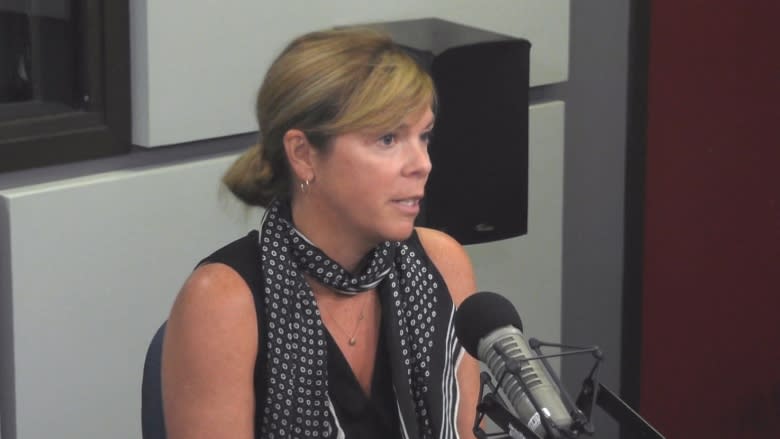Ottawa woman named chair of Ontario's first health advisory council after daughter's death
An Ottawa woman who spent years in and out of hospital with her sick daughter is bringing her experience with the health-care system into a new role as the first chair of the Ontario government's patient and family advisory council.
Julie Drury lost her eight-year-old daughter Kate to a rare form of mitochondrial disease called sideroblastic anemia immune deficiency on Nov. 30, 2015. Kate died after a recurrence of graft versus host disease, a life-threatening condition that occurs when transplanted cells attack the recipient's body.
From the time Kate was an infant, the mitochondria in her cells failed to properly convert food and oxygen into the energy her body needed. By the time her diagnosis was confirmed, she had already suffered through years of hearing loss, delayed development and episodes of intense cyclical vomiting.
The mitochondrial disease is so rare that at the time of Kate's death, Drury said fewer than 10 cases had been documented over the preceding 20 years.
Council aims to involve families in policy development
The creation of the patient and family advisory council was first announced by the province last October, and an announcement is expected this winter about its membership.
Its aim is to "involve patients, families, and caregivers in the policy development process, ensuring that their needs and concerns are fully understood, and [it] will help the health system become more responsive, transparent and accountable," according to a 2016 news release.
Drury has been selected to chair it.
"When this opportunity came up with ... the Ministry of Health to really be involved at the executive level and really look at patient engagement in health-care policy, I just thought it was a perfect fit," Drury told CBC Radio's Ottawa Morning in an interview Friday.
"It was written for me."
'A lot of experience'
Along with her experience working for Health Canada, Drury has first-hand experience navigating the health care system.
Kate was treated extensively at the Children's Hospital of Eastern Ontario, but was also treated in hospitals across Ontario and abroad.
In total, they were dealing with about 150 specialists at any given time, Drury said.
"I think I really bring a lot of experience to the role around how to navigate the system, where the challenges are, and what some of the needs of patients and families are," she said.
An example of things families are looking for include more care co-ordinators, people families can go to to find out about next appointments, where their referrals are at in the system, what the next steps are, and more, Drury said.
As well, a single document outlining a patient's health-care history would prevent families from having to tell their stories over and over again each time they see new specialists or visit a new hospital, Drury said.
'I'm humbled'
She's glad being able to bring her experience to the council might help others in the future.
"I don't think the word is comfort for me. I did have a moment when I arrived home from Toronto last night ... and I hadn't heard from Kate for a while. She talks to me a lot. And she was talking to me, and letting me know that this is a good thing to do, and that she's excited," Drury said.
"Am I doing it because of Kate? In a way, yes. I never expected to be where I'm at at the age of 45 with the life that I've led. It's not where I thought I would be. But ... I'm humbled, I'm proud to be in this position."



